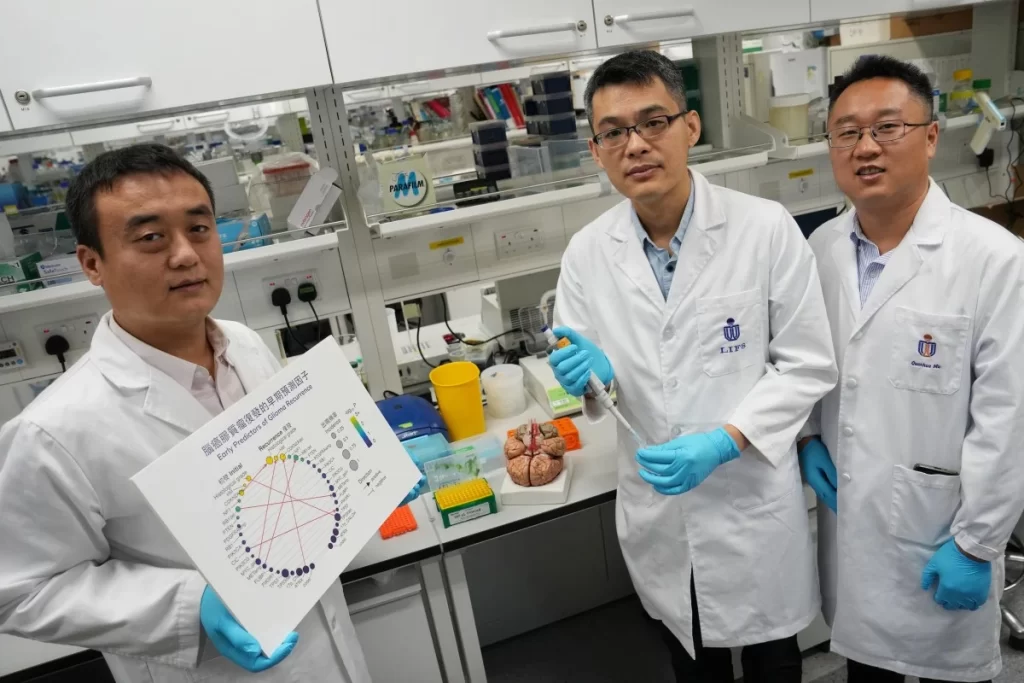
Researchers from Hong Kong, Beijing and South Korea have created an AI-powered tool and a web portal that can predict the prognosis for brain cancer patients, while providing publicly accessible information on the aggressiveness of individual cases.
The team led by the Hong Kong University of Science and Technology on Tuesday said the predictions could shed light on more precise treatments for patients to help improve their survival rate.
“The current treatment can usually only prolong patients’ overall survival time for around three months, and they almost inevitably suffer a recurrence,” said team leader Professor Wang Jiguan from the university’s division of life science.
“The recurrences of gliomas usually lead to a more aggressive and complex situation. The tumour cells in recurrence are also quite different from the ones in primary occurrences, which poses a great challenge to clinical treatment. ”
Glioma is a type of tumour that starts in the brain or spinal cord. Malignant diffuse gliomas are the most common primary brain tumours in adults.
The research – carried out by HKUST, Beijing Tiantan Hospital, Prince of Wales Hospital at Chinese University and the Samsung Medical Centre in South Korea – identified early predictors of glioma progression, such as the role of MYC gene amplification and CDKN2A gene deletion in accelerated tumour growth and increased risk of recurrence.
Researchers said the study, which involved 544 patients, revealed further disparities in brain tumour evolution among patients of different ethnicities. It observed that MYC gene amplification was more common among East Asian patients, while Caucasians showed a greater prevalence of a high-glioma risk factor.
“These findings emphasise the significance of tailored therapies targeting cancers,” Wang said.
“We believe the discovery of these early predictors in glioma evolution could help develop precision medicine for this aggressive type of brain tumour, especially for recurrent patients.”
To help predict the development of brain tumours after the initial diagnosis, the research team created the machine learning model named CELLO2, or Cancer Evolution for Longitudinal Data version 2. HKUST said the AI-powered technology could accurately predict tumour recurrence and identify patients facing higher risks.
Professor Chai Ruichao, from Beijing Tiantan Hospital at Capital Medical University, said the study could be used in testing the pathology of patients with brain tumours.
The researchers also set up an interactive and publicly accessible web portal to provide patients and doctors with a platform for uploading personal data and obtaining predictions on the aggressiveness of individual cases of brain tumours.
Wang said the AI-model was expected to take at least five years to be clinically validated, as it usually took three to five years to evaluate the recurrence of gliomas.
“The median survival for the disease is 15 to 18 months, while some patients can live for five more years. This suggests that the effectiveness of the current treatment varies from person to person, which highlights the significance of precision oncology,” Chai said.
“A successful example is leukaemia. Its survival rate was very low 20 years ago, but now its five-year survival rate can reach 80 per cent, thanks to the precise breakdown of this disease in clinical practice.”